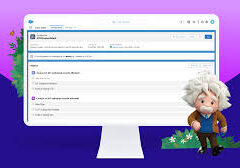Join Tectonic for an informational webinar on Salesforce Agentforce, Modernizing 311 services, and Case management.

In this webinar you will hear:
- An insightful customer story from Cincinnati Chambers
- Tectonic’s implementation breakdown
- An engaging Agentforce demo
- Tectonic Public Sector Team Gibran Quadri and Brian McAllister
For more information fill out the contact us form below or reach out to the Public Sector team PublicSector@GetTectonic.com


Get ready for the Next Frontier in Enterprise AI: Shaping Public Policies for Trusted AI Agents!
AI agents are a technological revolution – the third wave of artificial intelligence after predictive and generative AI. They go beyond traditional automation, being capable of searching for relevant data, analyzing it to formulate a plan, and then putting the plan into action. Users can configure agents with guardrails that specify what actions they can take and when tasks should be handed off to humans.

For the past 25 years, Salesforce has led their customers through every major technological shift: from cloud, to mobile, to predictive and generative AI, and, today, agentic AI. We are at the cusp of a pivotal moment for enterprise AI that has the opportunity to supercharge productivity and change the way we work forever. This will require governments working together with industry, civil society, and all stakeholders to ensure responsible technological advancement and workforce readiness. We look forward to continuing our contributions to the public policy discussions on trusted enterprise AI agents.












